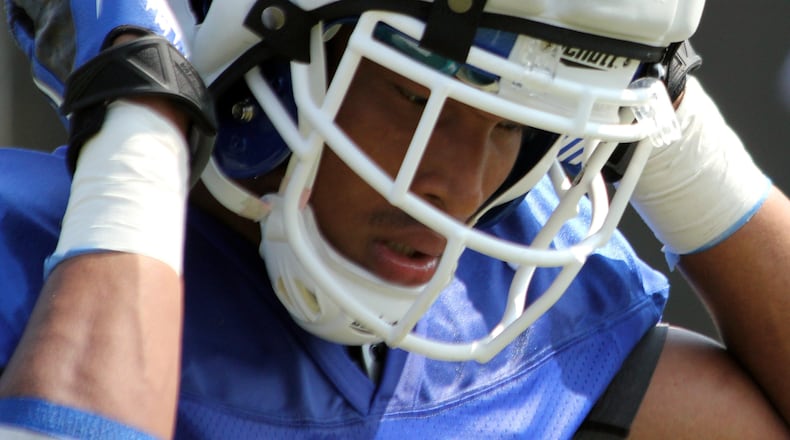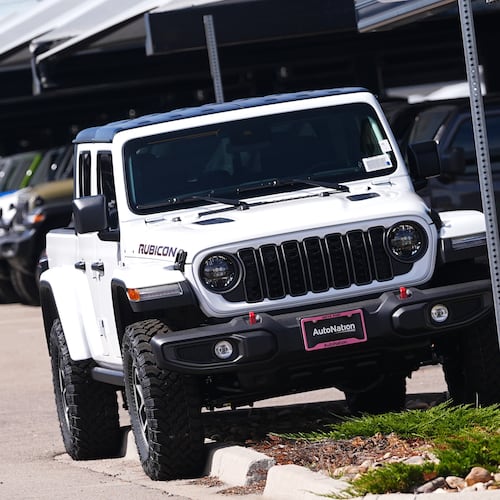An increasing number of football players from leagues to colleges are strapping heavily padded, locally developed “caps” to their helmets to prevent concussions and other serious injuries.
Guardian Caps were developed by Alpharetta-based Guardian Innovations LLC and is now used by around 35,000 players around the country, including many at schools in metro Atlanta and Georgia, according to co-founder Lee Hanson. That figure is up from the 600 free caps the company gave away initially in 2011 to get teams to try them.
The padded caps are used mainly during weekly football practices, when many serious injuries occur.
“Football helmets have not changed in 40 years,” Hanson told The Atlanta Journal-Constitution. “There are better engineered materials and concepts that are in America available to make these helmets better.”
The one-size-fits-all cap, made of a polyurethane, weighs less than 7 ounces. It is slippery to help minimize friction when the helmet hits something else. Friction often leads to injuries.
According to a report last year by the Institute of Medicine and National Research Council, the highest reported concussion rates for high school and college male athletes happen in football, followed by ice hockey, lacrosse, wrestling and soccer. Among females, the highest rates are in soccer, lacrosse, and basketball. Guardian Caps are also available for lacrosse helmets.
Hanson said the caps’ effectiveness continues to be tested but no conclusions have yet been reached about the caps cutting the risk or severity of concussions.
Several metro Atlanta public and private high schools also use the gear, including Alpharetta, Booker T. Washington, Pope, Johns Creek, Pace Academy and The Westminster Schools. Football programs at Georgia State and Georgia Southern universities also use the cap, according to Guardian Innovations.
The football program at the University of Toledo in Ohio is the first Division 1 team to use the cap.
Hanson, a Georgia Tech chemical engineering graduate, and his wife, Erin, founded their technology and material sciences company in 1996 to develop safety products for the military and commercial businesses.
The company began marketing its cap on its own when it couldn’t find a company that wanted it, Hanson said.
The caps, which are available at Sports Authority, sell for $59.95, but teams generally get a discount, at $50. Hanson said this year’s sales are expected to hit $1 million, compared with $650,000 last year.
Guardian Cap team has grown from four employees in 2011 to about 50 today, mostly engineers, chemists and scientists in Alpharetta, where product development is based. The caps are manufactured in Asia.
Many athletic departments only use products from manufacturers who certify their equipment meets standards set by the National Operating Committee on Standards for Athletic Equipment. NOCSAE has not approved the cap, while the National Federation of State High School Associations has no problem with teams using the them, Hanson said.
Hanson said he has been trying for four years to get NOCSAE to come up with standards for the cap.
Mike Oliver, executive director of NOCSAE, said the group does not have standards for the Guardian Cap or any other “add-on” to football helmets. Oliver said there are around a dozen protective add-ons on the market for helmets, from padded strips to sensors.
Hanson said the cap’s effectiveness has been tested by Atlanta Medical Center and Wayne State University, and is currently being tested by a Emory University researcher.
“If we don’t take advantage of current technology and knowledge we are doing a disservice to the safety of our children for the sake of profits to these helmet companies,” Hanson said.
Guardian Caps donates 5 percent of its profits to fund brain research.
About the Author
Keep Reading
The Latest
Featured

